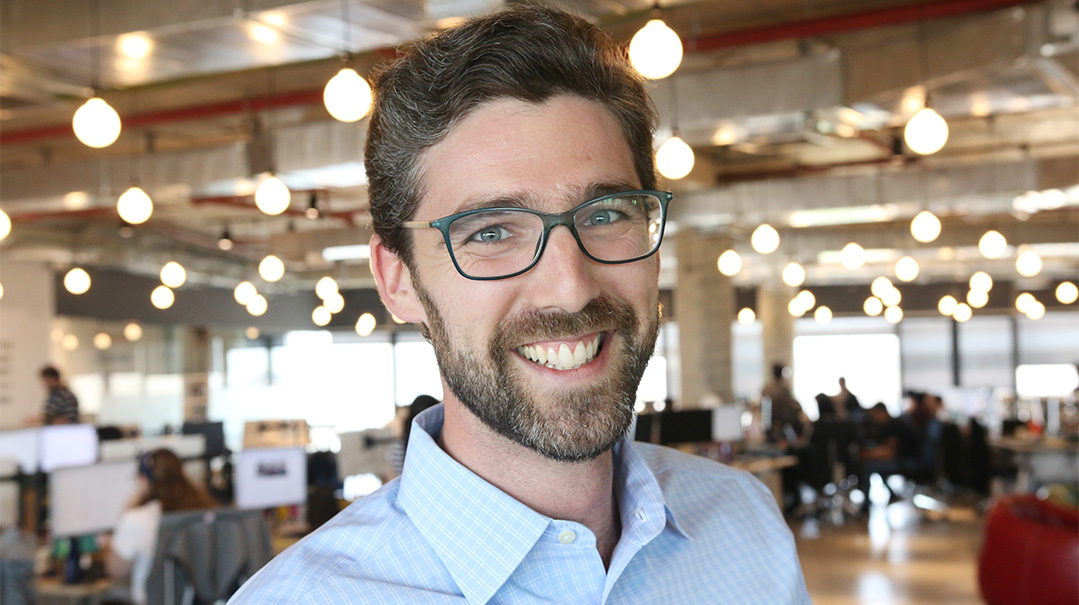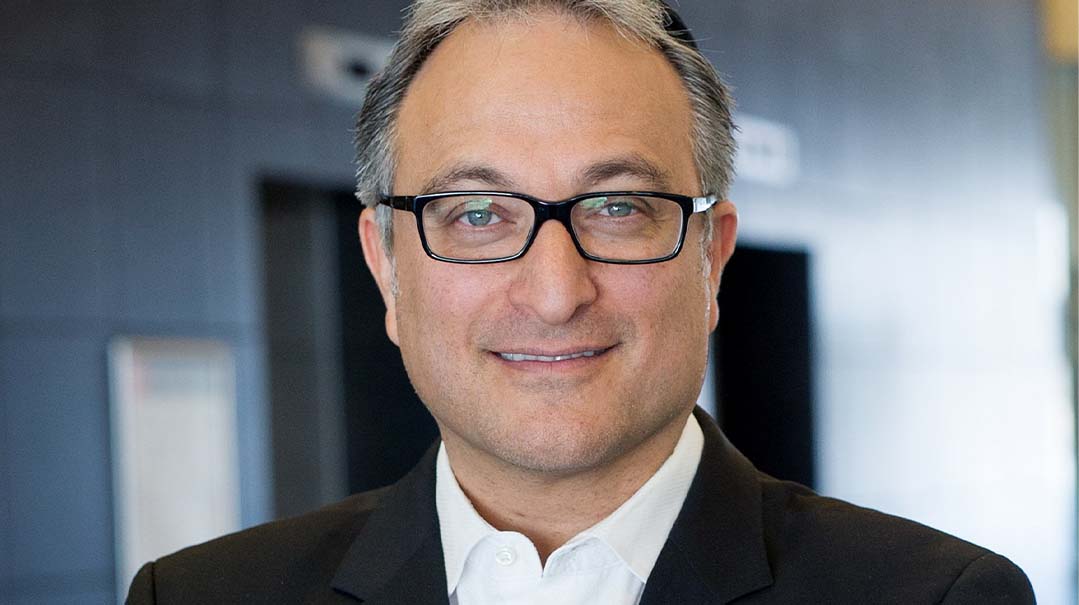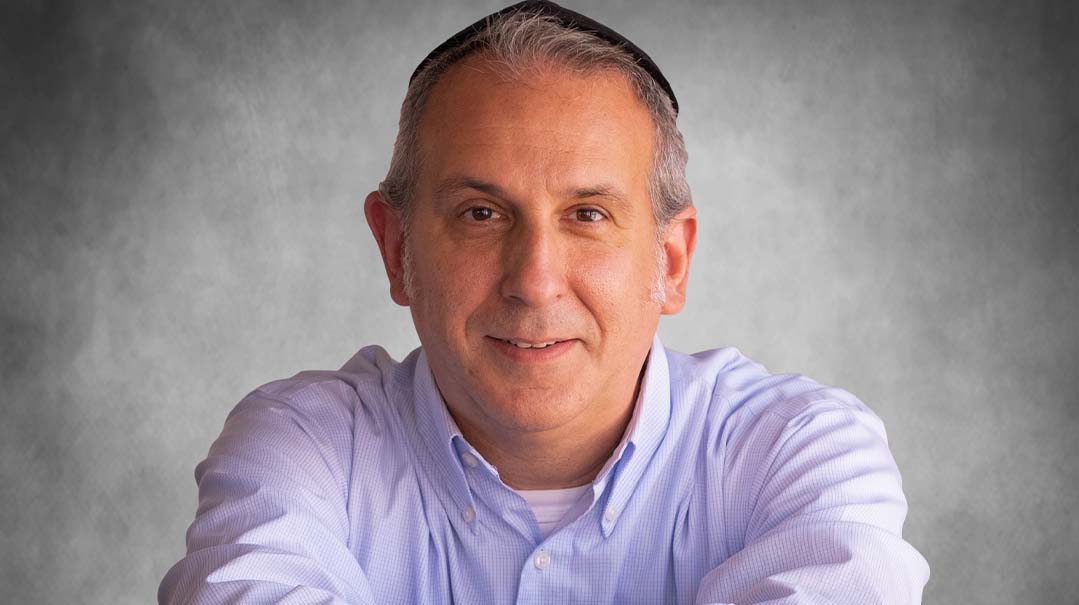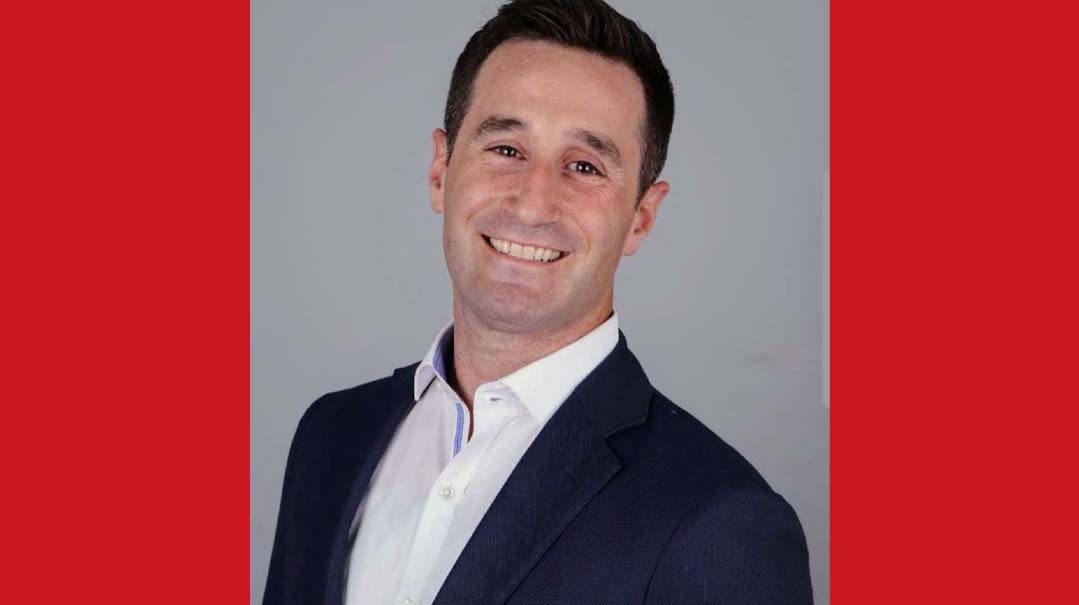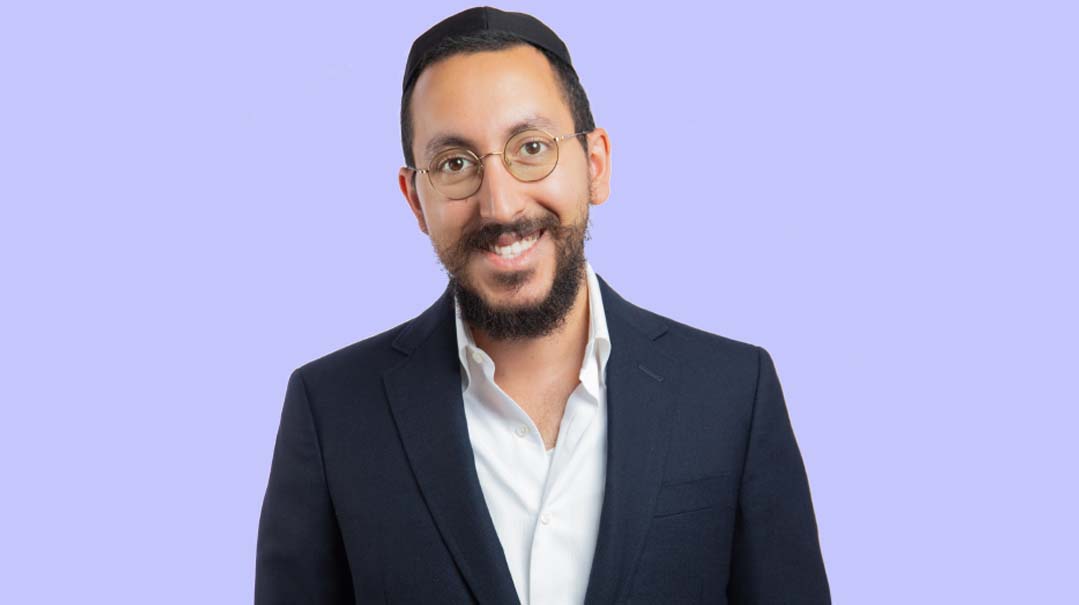Work/Life Solutions with Debra Kodish

It was a painful process and took me some time to absorb the shock and sadness. I learned to strengthen my emunah and realize that when one door closes others will open
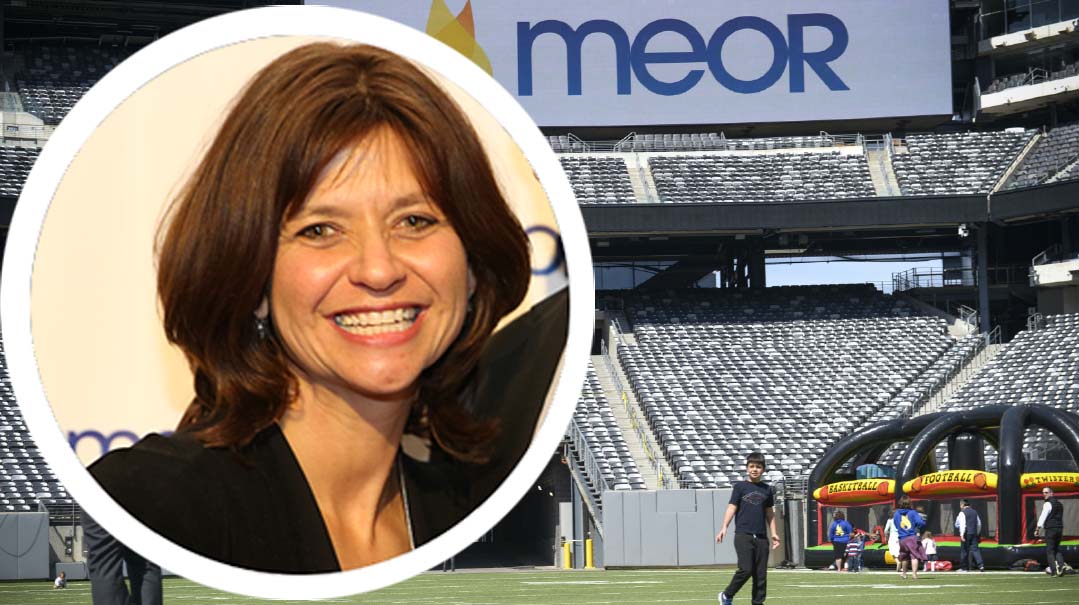
Who: Debra Kodish, executive vice president at MEOR and founder at Keshet Capital
What: In 2014, after nearly three decades in the world of banking and finance, Debra switched gears to lead MEOR, a nonprofit organization dedicated to inspiring, educating, and empowering Jewish students at top universities across the United States. MEOR’s goal is to engage this new generation in the discovery of their own heritage and identity, encouraging them to connect with Judaism, and empowering them to actively engage with the Jewish community.
Prior to MEOR, Debra worked in the Israeli capital markets, banking sector, and private equity markets — all driven by her passion for bringing investment to Israel. Debra has been involved in raising over $1 billion for public markets in Israel and north of $250 million in the private sector for major Israeli venture capital funds and early-stage companies, and has advised numerous Israeli start-up companies and foreign investors.
Debra earned a bachelor of accounting from George Washington University in 1990, a CPA certification in the US in 1992 and her license with the SEC of Israel in 1996. In 2000 she founded Keshet Capital, an investment banking advisory firm, in which she is still involved.
Where: Debra was born and raised in Philadelphia, PA. She made aliyah in 1994 and has been living with her husband and four children in the Gush Etzion town of Neve Daniel for the past 16 years.
Why: When I met Debra at a speaking event for MEOR, I was captivated by her story. She possesses stellar business credentials, helped build an investment bank, was one of the pioneers at the onset of Israel becoming the “Startup Nation,” yet seven years ago opted to devote the bulk of her professional life to the world of outreach, transforming MEOR into a powerhouse organization. I wanted to hear more of Debra’s personal story, how she came to blend her business experience with her passion for kiruv, and how, given her demanding schedule, she manages to remain balanced and happy.
What opportunities or personalities played a role in your career?
My parents were the first to teach me about business, entrepreneurship, accounting, and working hard. My father encouraged me to establish a strong foundation from which I could do anything, and accounting and finance turned out to be that foundation.
Secondly, I gained valuable experience working as a CPA for a few years before I made aliyah. Upon my arrival to Israel, I was fortunate to get immediate exposure to the banking and finance sectors, spending a year with the finance division of Bank Leumi. It also helped me improve my Hebrew, especially the business jargon. The pivotal moment was an opportunity to join a promising start-up and help build an investment bank in Tel Aviv that grew from just five of us to 120 employees when it went public in 1998. This was a time when bringing foreign investment to Israel was practically nonexistent. So being, as the saying goes, a big fish in a (very) small pond granted me access to a number of Israel’s leading businesspeople, entrepreneurs, innovators, and companies.
As a new immigrant in my twenties, I participated regularly in meetings with the presidents and CEOs of TEVA, Bank Hapoalim, Bank Leumi, and Bank Mizrahi-Tefahot, Supersol, Bezeq, and Africa Israel. At the same time, I was meeting with the heads of Morgan Stanley, UBS, Invesco, T. Rowe Price, and more — major global investors who were intrigued but unfamiliar with the story of modern Israel, with its energy, innovative capacity, and potential. So unfamiliar were some that they didn’t know where Israel was on the map, so we would actually bring maps with us to the meetings. In a way we were doubling as ambassadors to the managers of these emerging market funds, enlightening them to the beauty and history of Israel.
The most important person in my journey has been my husband, who I met three weeks after arriving in Israel. We were not religious then, but we were both raised Conservative/traditional so the leap wasn’t so foreign to us — and in fact, I was on a personal journey since high school. I found a class in Tel Aviv called “The Torah’s View of Money” by Rabbi Dr. Shalom Srebrenik, a well-known Arachim lecturer. It was amazing for me to realize the Torah actually had a view on money, and if it did, I wanted to understand the Torah’s views on many other subjects relevant to my life. This triggered a desire for more classes, and my husband-to-be joined me on the journey. He always encouraged and motivated me to continue building my career while raising our family and has been an incredible partner. People often ask me how I do what I do and my reply is always the same — having a strong partner by my side while staying true to my core values is the secret.
The next opportunity came when I was introduced to MEOR founders Tom Steinberg (who became my close mentor and friend), together with the brilliant and charismatic Rabbi Beryl Gershenfeld. Their vision was to build an organization working to educate, empower, and inspire Jewish university students across the United States. This very much resonated with me, because back when I was a student, I was eager to learn and understand more about my Jewish identity and plot the course for a life that included sustained personal growth. I grappled with the role that spirituality would play in my life long term, what values I would hold dear, and what kind of family I would want to raise. Unfortunately, there weren’t many answers to be found on campus, and it took me years of exploration to find the clarity I was searching for.
Initially I served MEOR as an advisor and consultant, assisting in the creation of systems and infrastructure as well as strategies to fortify donor relationships. MEOR possessed an energy that I found exciting — much like the start-ups and venture capital funds. The drive and dedication of the organization’s founders was inspirational… and contagious, so much so that my volunteer consulting gig ultimately turned into an invitation to join MEOR full-time, which I enthusiastically accepted.
Which three character traits have played a key role in your career path?
Loyalty. Passion. Intuition. I believe that everywhere I’ve worked and with the teams that I’ve built, my own loyalty to the people or projects around me has been a vital component to my success and happiness in my professional life. If I make a commitment to work with a client or build out a business, I feel it imperative to see it through to the end and feel good about the effort no matter the amount of time or investment it takes to complete the task. Additionally, I’ve found that following my passion and listening to my intuition — and of course a lot of siyata d’Shmaya — has guided me well over the years to make sure I’m surrounded by people who are best for me. I’m keenly aware that when I don’t follow my intuition, things don’t always work out.
What do you do to relax, recharge, or simply have fun? How do you make time for that, and how often?
The major things I do besides spending time with my family are read, exercise, and cook — and I habitually follow the stock markets. Another passion is educating women about finance, and I’ve taught many classes on the subject of money. Around 15 years ago some friends in the neighborhood began asking me about finance and money. Honestly, I was a bit shocked at the lack of understanding of some of the very basics so I asked if they wanted me to give a class locally. Twenty women attended the first course. The first question I asked was if anyone had ever had a finance class or course on money — and not one hand went up. Next, I asked everyone to give me a one-word association they have with the word “money.” The answers included “nauseous,” “stressful,” “confusing,” and “my-husband-just-can’t-die.” At that point I realized just how great the need was.
What would you say was your most resounding failure? What did you take away from that experience?
I spent a long year working on one of the largest deals of my career in 2008–2009, traveling back and forth from Asia, until the deal was finally signed. We had a big celebration and there were 30 days until funds had to be transferred. On the 29th day, the investor group crashed and could not execute the deal. It was a painful process and took me some time to absorb the shock and sadness. I learned to strengthen my emunah and realize that when one door closes others will open. While there was significant financial loss, the process taught me about myself, business, people, and situations that are out of our control. It was definitely a humbling experience.
If you were granted an extra three hours per day or a spare million dollars, what would you do with that time or money?
I would love the spare million for MEOR, or possibly even better, I would invest it and be able to donate the profits to MEOR for many years to come.
If I had an extra three hours, I’d be writing a book for nonprofits on how to enjoy enormous benefits by incorporating certain business fundamentals and practices into their operating procedures. Major philanthropists are able to donate because they have accumulated wealth, and many, if not most of them, view their charitable giving as investments, measuring ROI (return on investment) by the amount of social impact their gifts are able to generate. Nonprofits need to adapt more businesslike mindsets and demonstrate to their partners (and potential partners), with business language and metrics, why their work brings about the desired (promised) results. My hope is for the greater nonprofit world to make these changes not only to better compete, but to thrive and succeed.
What is the most inspiring feedback you’ve ever received? Did that impact what you did next?
After we sold the investment bank, I opened my own boutique investment advisory firm called Keshet Capital. Over the past 20 years I’ve worked with numerous venture funds, start-up companies, and investors as a strategic financial advisor and banker. Feedback about being a role model to other women in business inspired me to keep going and help those women learn to value their own worth and be able to encourage others to follow their passion.
When I started working in finance in Israel there were maybe five women in the field and it sometimes seemed like I was the only one who was religious. I was motivated and inspired to make a difference and break down barriers in hopes that I could pave the way and make it easier for other women going forward. I tried wherever I could to mentor women and encourage them in their businesses or more generally, in their direction in life. How they can balance work and family life, how they can feel empowered in their careers (not just finance) and not feel that they have to sell themselves short in what they earn or do, just because they may work more flexible hours.
If you were asked to deliver a TED Talk watched by 50 million people, what topic would you choose to speak about? Why?
How to teach your children about money. There is sadly so little education on finances and money in the school systems, and that’s why it’s even more important that this be taught at home — making the subject natural and comfortable for our children. My biggest advice to parents is never to tell your children that you can’t afford something. It’s just not true. You can afford the car you drive and the house you live in, so you don’t want your children to think you’re a hypocrite. What you can tell them is that something is not practical or economical, or that you’re putting away money for something special.
My kids have learned how to invest, so from a young age they’ve known what it means to have money work for you instead of spending your life working for money. In other words, the goal should be that we get to control our money instead of money controlling us.
Can you share a time when you had to navigate the tension between your deepest values and the business world?
After more than two decades of high-profile work with investment capital, I needed to be sure that my new path at MEOR would not only keep me motivated but also intellectually stimulated. From the outset, I knew that the work would be tremendously challenging. There was no doubt that raising funds to provide promising Jewish leaders with the ultimate platform for Jewish community, continuity, and connectivity would keep me on my toes. But when I became a full-fledged member of the MEOR team, I was pleasantly surprised to learn how fulfilling the endeavor is on a cerebral level as well. Managing entirely different kinds of “futures,” I find myself thinking at a whole new level.
Though I always enjoyed my craft, it was the ability to work toward the “greater good” on a daily basis that really drew me to the nonprofit world. Early on with MEOR I got a taste of the positive power that pervades the life of nonprofit professionals, and I wanted to feel that empowerment as well. In reality, many of my tasks remain the same — there are no shortages of phone calls, meetings, strategy sessions, and emails. However, now that I work toward strengthening Jewish peoplehood, even the most mundane tasks have been transformed into uplifting and life-altering work.
What surprised me most about my transition into nonprofit is the pace of business. Coming from the world of investment banking, which is known as a fast-paced and demanding industry, I was amazed by the time demands and unrelenting tempo of nonprofit work. Having spent countless hours and years raising money and advising investors, funds, and companies, at MEOR we are not just raising and spending money; we’re changing the world. When I watch our students’ lives being changed, it’s a dividend that, b’ezras Hashem, will pay big for Klal Yisrael in the years and decades to come.
If you were advising a young man/woman hoping to launch a career as an entrepreneur, which “dos” and “don’ts” would you share?
To elevate your passion, jump out of your comfort zone to do what you love, while staying in control of your time and your life. People face tremendous challenges with change, but often are stuck in the same positions for years where someone else controls their time. Many of these young people have terrific ideas and amazing talents, but executing and maximizing them takes courage and risk. When I started my own company at the age of 31, I felt I didn’t have another choice. I wanted to be there for my family and as much as possible run my own schedule. Starting my own company was the only way I could make that happen. I remember always being “in a meeting” from 4 p.m. to 7 p.m. This was the time for my kids to have dinner as a family. I almost never took a call or had a meeting between those hours until my kids got bigger. Working with the US and living in Israel, I was always happy to take calls until late in the evening to make up for any lost time. If you are going to build your own business, setting boundaries and dedicated downtime for your family and yourself is critical for long-term success. Just like in finance, slow and steady wins the race.
(Originally featured in Mishpacha, Issue 887)
Oops! We could not locate your form.
